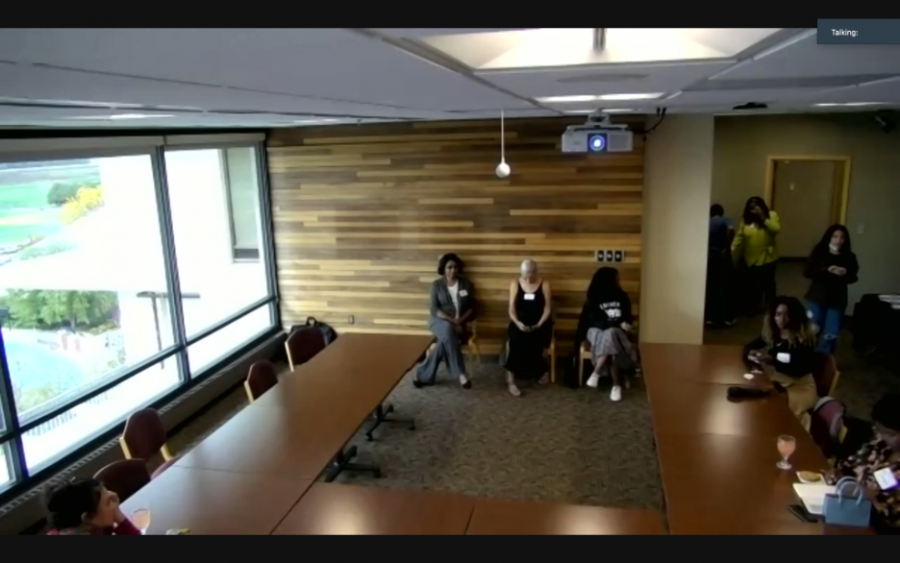BSU hosts discussion on Women of Color in global power
Luther’s Black Student Union held an event on Saturday, October 2, celebrating and examining the contributions of Women of Color in the corporate world. The panelists included Women of Color from all professional backgrounds, including Arlivia Williamson (‘72), who currently teaches for Chicago Public Schools, Julie Van Arsdale-Jervis (‘82), the senior manager for multiple big pharma companies, and Brandi Williamson (no relation), an attorney and aviation regulation specialist.
Hosted and moderated by entrepreneur and Co-President of the Black Alumni Association Loretta Dooley Wetzel (‘80), the discussion covered the career struggles of the featured panelists. The women spoke for two hours on topics ranging from identity expression in the workplace, to their first experiences with racism and overcoming adversity in fields dominated by white men. BSU Secretary Maya Mukamuri (‘22) said the panel discussion gives Women of Color on campus professional and experiential insight from successful Black women.
“My hope is that this event will uplift and encourage Women of Color in their future endeavors,” Mukamuri said. “Whether you want to be a global leader or not, this event is an amazing opportunity for Women of Color to listen to the experiences of other Women of Color who have been pivotal figures in their professional circles.”
Wetzel asked the panelists about their experiences with racism in the past, both in their social and professional lives. They shared personal stories about their experiences in the workplace, including feelings that they need to prove their worth, combating microaggressions and discrimination, and having difficult conversations with employers and subordinates about behavioral patterns. In response to several audience questions about fighting racism in the workplace and in educational spheres, all of the panelists were adamant about the necessity of Women of Color in the workplace to be unapologetic about their racial identity.
“Don’t think there is something about your blackness that is not professional,” Brandi Williamson said.
BSU president Phoenix Bradley (‘23) was directly involved in arranging this event, and explained how she was passionate about creating a more inclusive and inviting community for Women of Color on campus.
“As the BSU President, I want to make sure that there are spaces for Black-identifying students to feel seen and heard, and to learn from those who look like them,” Bradley said. “It is also important to me personally because I didn’t get a lot of experiences like this when I was younger, because I have always resided in predominantly white areas. Having an opportunity to hear about what other Women of Color, specifically Black women, have gone through is really inspiring.”
The interrelation of gender and race dynamics in the workplace brings up the concept of intersectionality, coined by lawyer, philosopher, and professor of law at UCLA Kimberlé Crenshaw. Mukamuri discussed the importance of intersectionality and her experience in having discussions about it at Luther.
“I think it is most challenging for people to understand the intersection of feminism and race,” Mukamuri said. “It is important to recognize women of all races, backgrounds, and experiences when discussing feminism. In my experiences here, it is very easy for people to focus on one demographic of people when discussing feminism at Luther.”
The panel discussion opened a conversation about being both Black and a woman pursuing a career. Noting the importance of this, Bradley cited the necessity of acknowledging intersectionality in any conversation about identity, both on campuses and in the broader world.
“I can’t have a conversation about race, or a conversation about womanhood or feminism, without having to consider both of those pieces of my identity,” Bradley said. “I can’t be just a woman and I can’t just be Black. I am both, and they are constantly affecting each other.”






